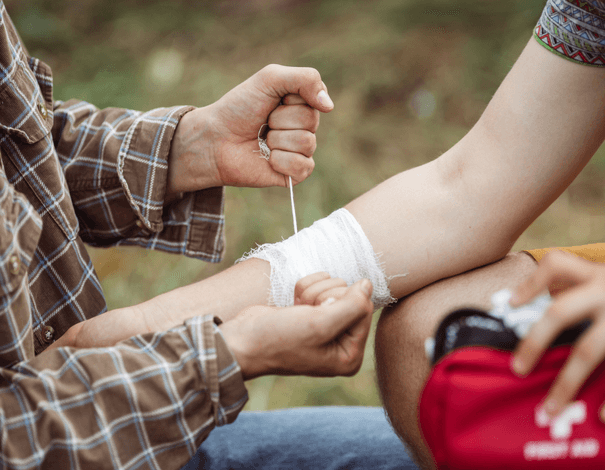Customs, Security and Border Crossing
Customs, security and border crossing inspection requirements and restrictions are always changing. Depending on your medications, medical devices and special circumstances, you may need to take extra measures to ensure that all your health-related items also join you on your trip.
Passengers with medical needs are allowed to bring prescription and essential nonprescription medications with them through the security checkpoint, as well as any medically-required items and mobility aids.
Before Your Trip
If you take medications regularly, you may visit your doctor before your trip to get a note indicating any medications, medical conditions or special needs you may have. You should also visit your pharmacist for an up-to-date list of your medications and any special packaging requirements you have.
Before your flight, check with your airline which items are permitted or prohibited in the aircraft cabin. Sharp objects and bottles of liquid over 100 ml are usually not allowed in carry-on luggage. There are exceptions, however, so it is important to be well informed before you go. You may bring prescription and essential non-prescription liquid, gel and aerosol medication in quantities more than 100 ml in your carry-on bag. Otherwise, always carry all of your medications and medical supplies with you while in transit. Replacing medications while away may not be easy or possible.
Don’t forget that some medications (like medical marijuana) are not allowed to leave or enter certain countries.
Packing your Medications
If you have prescribed medications or use over-the-counter medications routinely or as needed, you should pack them for your travels.
Things to Ask to your Pharmacist
The first step is to meet your pharmacist to discuss your trip plans well in advance so they can make sure you have enough medications. They can also provide you with a current list of your medications. This can be helpful at customs, security and border crossing inspections, especially if you have special medications or require special packaging.
Don’t forget to discuss how to adjust your medications in transit, when you are on your trip, as well as when you return and need to readjust to your home’s time zone.
Finally, if you take medications that usually need refrigeration for storage or in-between use, your pharmacist can explain to you how to properly pack these in a chilled thermos or insulated bag until they can be refrigerated again at your destination. If required, refresh the ice or cold pack in transit.
In your Luggage
- Pack your health documents (medication lists, surgery letter, travelling with sharps letter) with your medications in your carry-on bag.
- Consider bringing items that you might have trouble finding or may be of poor quality in the country you will be visiting, such as your preferred brands of over-the-counter medicines, condoms or syringes.
- Keep your medications in the bottles or packaging that came from the pharmacy. Security can question and deny you from taking pills in unmarked or improperly packaged containers.
Travelling with Injection Medications
Travelling with injection medications involves bringing needles or syringes through security. Check with your airline in advance so you know what documents you’ll need before you leave.
Here are three key reminders when travelling with needles:
- Carry a letter from your prescriber explaining the use of the needles or syringes.
- Ensure the needles you are travelling with have a needle guard and accompany the medication.
- Ensure the medication is properly labelled from the pharmacy or with the original packaging from the manufacturer.
Before your trip, always visit your pharmacist to discuss your medications. They can help you figure out how to manage it and make sure you have enough for your whole trip.
For more information, refer to the Canadian Air Transport Security Authority (CATSA) Website.
The pharmacy services presented in this section are offered by pharmacist owners who are affiliated with Uniprix. The pharmacists are solely responsible for the professional activities carried out during the practice of pharmacy. These services are offered in participating pharmacies only. Certain fees and conditions may apply.
* The information contained herein is provided for informational purposes only and is not intended to provide complete information on the subject matter or to replace the advice of a health professional. This information does not constitute medical consultation, diagnosis or opinion and should not be interpreted as such. Please consult your health care provider if you have any questions about your health, medications or treatment.




